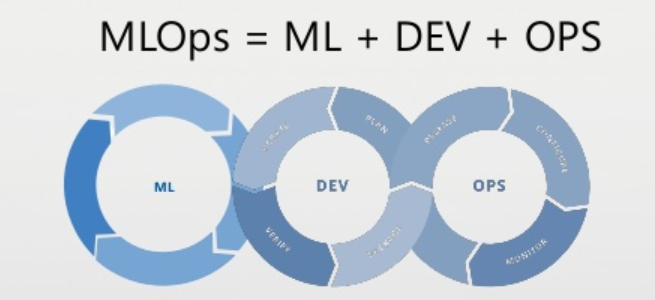What Is MLOps and What Does Big Data Have To Do With It?
By analogy with DevOps and DataOps, and the growth of their practical implications, the business needs to organize continuous cooperation between participants.
Join the DZone community and get the full member experience.
Join For FreeWhile digitalization is bringing the DataOps concept to life, the Big Data world is introducing a new paradigm - MLOps.
By analogy with DevOps and DataOps, and the growth of their practical implementations, the business needs to organize continuous cooperation and interaction between all participants in the processes of working with machine learning models from business to engineers and Big Data developers, including Data Scientists and ML specialists.
The concept of MLOps is still quite young, but every day it becomes more and more in demand. For the first time, the professional community spoke publicly about the need for integrated lifecycle management of machine learning in industrial operation (production) around 2018, after one of the Google presentations.
In practice, the problem of introducing ML-models into a real business is not limited to data preparation, development, and training of a neural network or other Machine Learning algorithm. The quality of a production solution is influenced by many factors, from verification of datasets to testing and deployment in a production environment in the form of a reliable Big Data application.

This means that the actual results of prediction or classification depend not only on the neural network architecture and the machine learning method proposed by Data Scientist, but also on how the development team implemented this model, and the administrators deployed it in a clustered environment. The quality of the input data also matters, sources, channels, and frequency of their receipt, which belongs to the area of responsibility of the data engineer.
Organizational and technical obstacles in the interaction of multidisciplinary specialists involved in the development, testing, deployment, and support of ML solutions lead to an increase in the time to create a product and a decrease in its value for the business.
To eliminate such barriers, the concept of MLOps was invented, which, like DevOps and DataOps, seeks to increase automation and improve the quality of industrial ML solutions, paying attention to regulatory requirements and business benefits.
Thus, MLOps is a culture and a set of practices for complex and automated lifecycle management of machine learning systems, combining their development and operational support operations incl. Integration, testing, release, deployment, and infrastructure management.
We can say that MLOps extends the CRISP-DM methodology with the help of an Agile approach and technical tools for automated execution of operations with data, ML models, code, and environment. Such tools include, for example, Cloudera Data Science Workbench. Putting MLOps into practice is expected to avoid common pitfalls and problems faced by Data Scientists when working with the classic phases of CRISP-DM.
Top 10 Benefits for Business and Data Science
Of all the benefits of MLOps implementation, the most significant are the following advantages of Agile approaches concerning the specifics of the industrial deployment of Machine Learning:
Reducing the time to get quality results through reliable and efficient machine learning lifecycle management;
reproducible workflows and models thanks to Continuous Development / Integration / Training (CI / CD / CT) methods and tools;
Easy deployment of high-precision ML models anywhere and anytime;
Integrated Management System and continuous monitoring of machine learning resources;
Elimination of organizational barriers and pooling the experience of multidisciplinary ML-specialists.
Thus, using MLOps, the following aspects of ML operations can be optimized:
Unify the release cycle of machine learning models and software products created on their basis;
Automate testing of Machine Learning artifacts, such as data validation, testing of the ML model itself and its integration into a production solution;
Implement agile principles in machine learning projects;
Support machine learning models and datasets for them in CI / CD / CT systems;
Reduce technical debt by ML-models.
Notably, MLOps organizational practices should be language, framework, platform, and infrastructure agnostic. And from a technical point of view, the general architecture of the MLOps system will include platforms for collecting and aggregating Big Data, applications for analyzing and preparing data for ML modeling, tools for performing calculations and analytics, as well as tools for automated movement of Machine Learning models, data and software products created on their basis between different processes of their life cycle.
This will allow to partially or completely automate the work tasks of a Data Scientist, data engineer, ML specialist, architect and developer of Big Data solutions, as well as DevOps-engineer using unified and efficient pipelines.
Opinions expressed by DZone contributors are their own.

Comments